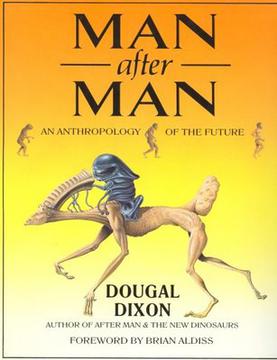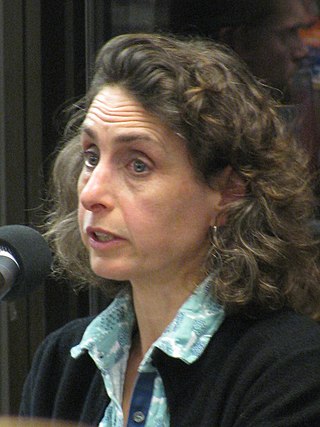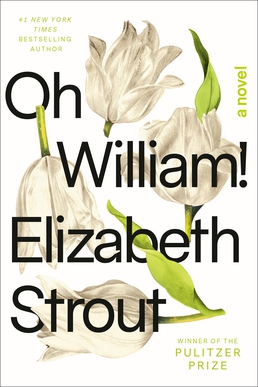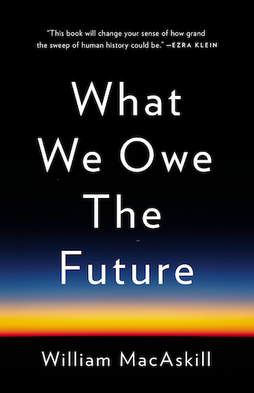
Man After Man: An Anthropology of the Future is a 1990 speculative evolution and science fiction book written by Scottish geologist and palaeontologist Dougal Dixon and illustrated by Philip Hood. The book also features a foreword by Brian Aldiss. Man After Man explores a hypothetical future path of human evolution set from 200 years in the future to 5 million years in the future, with several future human species evolving through genetic engineering and natural means through the course of the book.

Iran Davar Ardalan is a tech entrepreneur, journalist, and author based in Washington, D.C. Known as Davar Ardalan, she is the founder of TulipAI, former Executive Producer of Audio at National Geographic, and has served as co-chair of the Cultural Heritage and AI track at ITU's AI for Good. Prior to this, she was deputy director of the White House Presidential Innovation Fellowship Program in Washington, D.C. She was also a long-time journalist at NPR News, where she helped shape the news shows Weekend Edition and Morning Edition, and was responsible for decisions that required elaborate coordination such as live broadcasts from Baghdad, Kabul, and New Orleans. Ardalan is an advocate for cross-platform storytelling. At NPR, her real-time storytelling campaigns cultivated thought leaders across platforms and reached millions on Twitter and Facebook.

Elizabeth Kolbert is an American journalist, author, and visiting fellow at Williams College.

References to climate change in popular culture have existed since the late 20th century and increased in the 21st century. Climate change, its impacts, and related human-environment interactions have been featured in nonfiction books and documentaries, but also literature, film, music, television shows and video games.
Scott Carney is an American investigative journalist, author and anthropologist. He is the author of five books: The Red Market, The Enlightenment Trap, What Doesn't Kill Us, The Wedge, and The Vortex. Carney contributes stories on a variety of medical, technological and ethical issues to Wired, Mother Jones, Playboy, Foreign Policy, Men's Journal, and National Public Radio.

Alex von Tunzelmann is a British popular historian, author, newspaper columnist, podcaster and screenwriter.

Jeff Goodell is an American author of seven non-fiction books and a longtime contributing writer to Rolling Stone. Goodell's writings are known for a focus on energy and environmental issues. He is Senior Fellow at the Atlantic Council and a 2020 Guggenheim Fellow.

Field Notes from a Catastrophe: Man, Nature, and Climate Change is a non-fiction environmental science book by Elizabeth Kolbert that was published by Bloomsbury Publishing in 2006. The book documents a series of scientific observations and political processes, bringing attention to the causes and effects of global climate change. In this book, Kolbert is able to make scientific developments accessible to a very wide audience.

Planet Money is an American podcast and blog produced by NPR. Using "creative and entertaining" dialogue and narrative, Planet Money claims to be "The Economy Explained".

Adam Frank is an American physicist, astronomer, and writer. His scientific research has focused on computational astrophysics with an emphasis on star formation and late stages of stellar evolution. His work includes studies of exoplanet atmospheres and astrobiology. The latter include studies of the generic response of planets to the evolution of energy-intensive civilizations (exo-civilizations).
Irus Braverman is a legal scholar and ethnographer, and is a professor of law and an adjunct professor of geography at the University at Buffalo (SUNY). She was born in Jerusalem.

The Sixth Extinction: An Unnatural History is a 2014 nonfiction book written by Elizabeth Kolbert and published by Henry Holt and Company. The book argues that the Earth is in the midst of a modern, man-made, sixth extinction. In the book, Kolbert chronicles previous mass extinction events, and compares them to the accelerated, widespread extinctions during our present time. She also describes specific species extinguished by humans, as well as the ecologies surrounding prehistoric and near-present extinction events. The author received the Pulitzer Prize for General Nonfiction for the book in 2015.
Kai Cheng Thom is a Chinese-Canadian writer, performance artist, mental health community worker, youth counsellor, and former social worker. Thom, a non-binary transgender woman, has published five books, including the novel Fierce Femmes and Notorious Liars: A Dangerous Trans Girl's Confabulous Memoir (2016), the poetry collection a place called No Homeland (2017), a children's book, From the Stars in The Sky to the Fish in the Sea (2017), I Hope We Choose Love: A Trans Girl's Notes from the End of the World (2019), a book of essays centered on transformative justice, and Falling Back in Love With Being Human: Letters to Lost Souls (2023).

Ayana Elizabeth Johnson is a marine biologist, policy expert, and conservation strategist. She is the co-founder of Urban Ocean Lab, a think tank for ocean-climate policy in coastal cities, and the Roux Distinguished Scholar at Bowdoin College. She is the author of What If We Get It Right? Visions of Climate Futures (2024).

The Anthropocene Reviewed is the shared name for a podcast and 2021 nonfiction book by John Green. The podcast started in January 2018, with each episode featuring Green reviewing "different facets of the human-centered planet on a five-star scale". The name comes from the Anthropocene, the proposed geological epoch that includes significant human impact on the environment. Episodes typically contain Green reviewing two topics, accompanied by stories on how they have affected his life. These topics included intangible concepts like humanity's capacity for wonder, artificial products like Diet Dr. Pepper, natural species that have had their fates altered by human influence like the Canada goose, and phenomena that primarily influence humanity such as Halley's Comet.
Pyrocene is a proposed term for a new geologic epoch or age characterized by the influence of human-caused fire activity on Earth. The concept focuses on the many ways humans have applied and removed fire from the Earth, including the burning of fossil fuels and the technologies that have enabled people to leverage their influence and become the dominant species on the planet. The Pyrocene offers a fire-centric perspective on human history that is an alternative to or complementary term for the Anthropocene. Like the Anthropocene, the concept suggests that human activity has shaped the Earth's geology and identifies fire as humanity's primary tool for shaping the planet and its environment.

Falter: Has the Human Game Begun to Play Itself Out? is a book by American author Bill McKibben. He argues that the human game is risking playing itself out because of "leverage", or the scale of change to the planet that humans are causing. The book is largely about climate change, but also includes some discussion of unregulated artificial intelligence and bioengineering, two other modern developments that in the author's view pose significant risks to humanity. The book received mostly positive reviews.

How to Avoid a Climate Disaster: The Solutions We Have and the Breakthroughs We Need is a 2021 book by Bill Gates. In it, Gates presents what he learned in over a decade of studying climate change and investing in innovations to address global warming and recommends technological strategies to tackle it.

Oh William! is a novel by American writer Elizabeth Strout, published on October 19, 2021, by Random House. The novel focusses on a now successful, middle-age writer, Lucy Barton, whose earlier life was at the center of Strout's novels My Name Is Lucy Barton (2016) and Anything Is Possible (2017). It deals in particular with her relationship to her ex-husband, William, with whom she has two adult daughters. While he is now in his third marriage, Lucy has been recently widowed after a happy second marriage. The novel also explores Williams's family history and reveals unexpected details about his now deceased mother and father. The story of how these findings impact their later lives will be continued in the fourth novel in the series, Lucy by the Sea (2022).

What We Owe the Future is a 2022 book by the Scottish philosopher and ethicist William MacAskill, an associate professor in philosophy at the University of Oxford. It advocates for effective altruism and the philosophy of longtermism, which MacAskill defines as "the idea that positively influencing the long-term future is a key moral priority of our time." His argument is based on the premises that future people count, there could be many of them, and we can make their lives better.
















